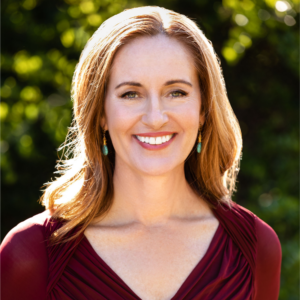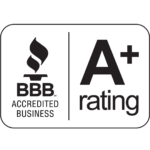How Do You Write An Artist’s Statement? DON’T!
How Do You Write An Artist’s Statement? DON’T!
(Transcription)
Artist, Jen Colombo,
Stamford, Connecticut
QUESTION: What were your top two challenges?
Jen Colombo: My top two challenges w ere; I really had no idea how to market my art. I had no idea how to find customers. I had been selling, but it was two people that I knew and it was more something I was doing on the side and when I decided that I was going to attempt to do this full time now I needed guidance. I had no strategy. I was completely clueless about what I was doing.
QUESTION: What did other artists tell you to do?
Jen Colombo: Artist’s Statement, and ready? Exposure.
Ann Rea: The combo! Go ahead and kill your prospects of selling your art, write a boring ass self-involved cringeworthy artist’s statement, and then look for exposure everywhere. (laughs) No matter what. Don’t ever stop. Don’t ever give up, even though it’s complete shit exposure. (laughs)
QUESTION: What advice did you receive?
Jen Colombo: The advice was more about making sure you’re talking about your color palettes and you should only ever be sticking to certain color palettes. That was hard for me, especially because I have a degree in theatrical scenery design so I’m super varied sometimes. I couldn’t wrap my head around how to fit the skill set that I had.
Ann Rea: What expert, pray tell, told you you need to stick to specific color palettes? How ridiculous!
QUESTION: What did your artist’s statement say?
Jen Colombo: A watercolor artist and I worked in acrylic paints and I was trying to capture the essence of moments in my work and then I kind of talked a little bit about my background and it was really horrible.
QUESTION: What was it like writing your artist’s statement?
Jen Colombo: It was painful to write and it was really a struggle and typically I know they’re longer. I got as far as a paragraph
Ann Rea: And you just had to quit. (laughs)
Jen Colombo: I was like, you’re supposed to react and feel my art. Yeah.
Ann Rea: What did people think of your artist’s statement?
Jen Colombo: Oh Wow. What is this girl talking about? It was honestly so inauthentic, it felt very… There was no emotional connection to that statement, and when I read it, because I read it a couple of hours ago before we got on this call, I can feel that it is just forced and fake.
QUESTION: What’s it like sharing your mission?
Jen Colombo: Oh my goodness, so much better because it’s from here (my heart) and it has so much more meaning.
QUESTION: How are people responding to your mission?
Jen Colombo: People were like; well, you’re opening up a conversation, because I’m curious. I want to hear more, what that means and why you feel connected to that and that’s been really awesome because it’s so natural. Nothing is forced.
QUESTION: What advice would you give your younger self?
Jen Colombo: I would tell her that it’s possible to make money doing it, to make money doing it if you have the right strategy and to be authentic and that’s who people really see your authenticity.
QUESTION: What else would you tell her?
Jen Colombo: It’s possible to do if you have a plan. I mean there are some things I had thought about before I joined this course that are coming up in this course, I’m like, okay, great, but the thing is I probably would have stumbled around for quite some time, maybe even years trying to figure out how to find my market, how to actually talk about my work and it being more of a mission instead of about the work and just all of the strategies that comes along with it. It’s a nice plan I have. I don’t have a business background, so it’s nice to have everything. It’s nice to have the roadmap laid out for you.
QUESTION: What’s the biggest lesson you’ve learned?
Jen Colombo: Oh, well the biggest lesson by far is; it’s not about your art in whatever form it is, I know there’s more disciplines on here, It speaking about it from your purpose is so much better. I mean, it feels better when I’ve just talk to people in general. It just leads to more conversation and I’m not forcing anything. I’m just being me and that’s amazing.
QUESTION: What have you gained?
Jen Colombo: As somebody again who has no clue about marketing or anything to have an actual structure that I can follow that I don’t have to try to go and figure out myself is truly amazing.
QUESTION: What advice do you have for artists?
Jen Colombo: I would say you have to invest in yourself. I mean you’re going to spend the money anyway struggling to do it on your own, so really truly invest in yourself. I’m not even to the end of the course yet and already, I’ve just had so much clarity on so many things on how to proceed, which is great. And one of the best parts of this program is the study partners. I love my study partners. I have so many. I have a lot of study partners and I love meeting with them like it’s so great to talk to other like minded people, but also just if you’re not sure on something, the biggest thing I’ve found with study partners is just actually talking like this with a study partner, you’re both just brainstorm together and figuring stuff out and it’s. It’s amazing to have somebody to talk to about that and bounce things off of.

Ann Rea, Fine Artist & Mentor
Ann Rea is a San Francisco-based fine artist. She created Making Art Making Money™, the leading and most reputable business program for fine artists since 2005. Rea’s art and business savvy have been featured on ABC, HGTV, Creative Live, The Good Life Project, in the book Career Renegade by Jonathan Fields, the San Francisco Chronicle, Art Business News, Fortune, and Inc. Magazines. Rea’s artistic talent was commended by her mentor, art icon Wayne Thiebaud.


Thank you so much for sharing this. For years I thought it was just me. I always felt artists statements were artificial and stuffy. Then every show I entered(I know and I’m sorry now) insisted on you having one. So I just thought maybe you (meaning myself) are not creative enough to write this amazing representative statement of your art. I was feeling inside each person who saw my art would feel something different. I didn’t feel I should write all this fluff. Thank you again.
It’s not you. It’s the scarcity and permission based art establishment.